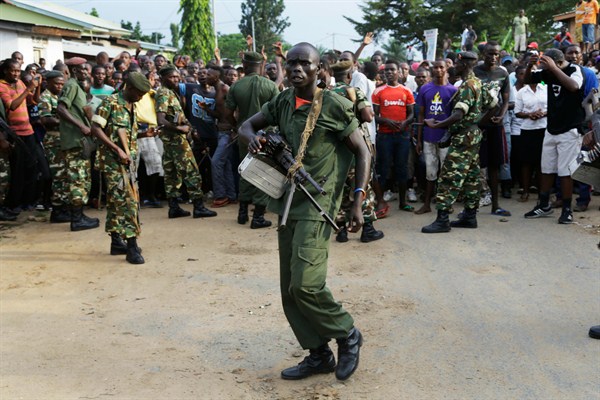Two years after a political crisis erupted in Burundi when President Pierre Nkurunziza decided to run for a third term, the country remains stuck at an impasse, facing low-intensity violence, political oppression and an increasingly desperate economic situation.
As the trouble began in 2015, local, regional and international actors tried to facilitate negotiations and a peaceful solution to a crisis that threatened to transform into a new civil war and spill over Burundi’s borders. But then Burundi left the spotlight after Nkurunziza managed to nip regional and international interventions in the bud, and events such as Brexit and Donald Trump’s election as U.S. president shook the foundations of the international system. With political violence temporarily decreasing, Burundi fell off the radar of most international news.
Its crisis, though, has not ended, with close to 400,000 refugees, a disintegrating army and a silenced media.

